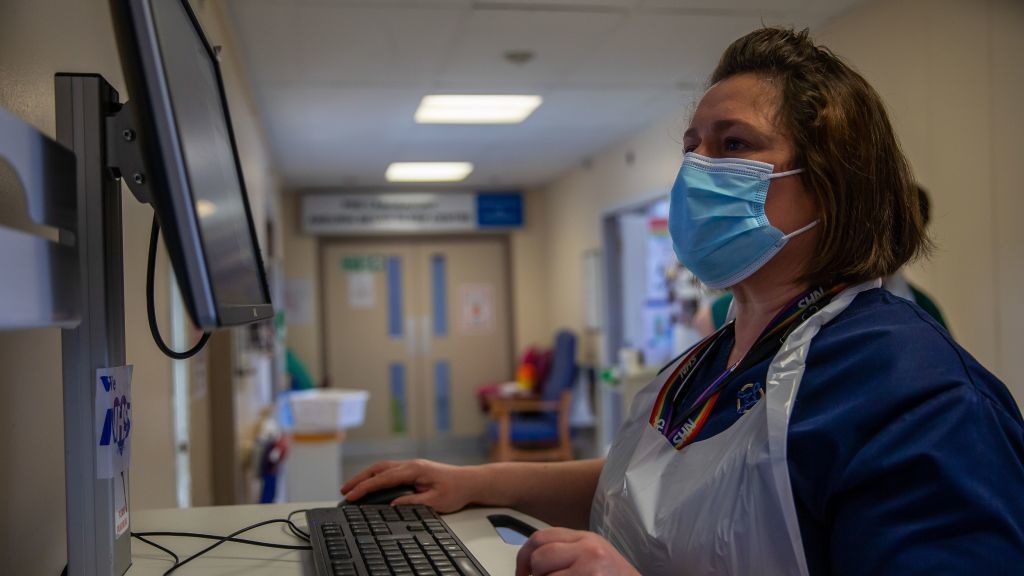Defunct NHS IT project still costing UK taxpayers billions, MPs claim
Public Accounts Committee claims paperless NHS vision could be jeopardised by past IT failures.

MPs have poured scorn on Health Secretary Jeremy Hunt's vision of having a paperless NHS by 2018, because of its "sorry history" in tackling IT projects to date.
This was one of the findings of the Public Accounts Committee's (PAC) long-awaited report into the now defunct NHS National Programme for IT, which aimed to provide a centralised database of medical records for UK citizens.
As with the National Programme, it will be important to balance the need for standardisation across the NHS with the desire for local ownership.
The committee also revealed that UK taxpayers are still being forced to cough up for the project, despite the Government calling time on its activities in 2011, due to delays in the renegotiation of IT contracts with software company CSC.
The organisation was originally contracted, a decade ago, to deploy its Lorenzo electronic patient record system to 166 NHS Trusts by 2005 at a cost of 2.4 billion.
However, by 2011, only 10 Trusts had deployed the software. The delays prompted the Department of Health (DoH) to try and renegotiate its contract with CSC.
"Despite two years of negotiations the full resetting of the contract is yet to be agreed with CSC, but the department estimates that the contract is still likely to cost about 2.2 billion, including 572 million for the Lorenzo care records system," the PAC report states.
As a result, the PAC said the full and final cost of the project is still not known, although recent DoH forecasts estimated it to be around 9.8 billion.
Sign up today and you will receive a free copy of our Future Focus 2025 report - the leading guidance on AI, cybersecurity and other IT challenges as per 700+ senior executives
"However, this figure did not include the future costs associated with the Department's contract with CSC for the Lorenzo care records system or the potential future costs arising from the Department terminating Fujitsu's contract for care records systems in the South of England," the report added.
The Committee said the benefits the project had delivered to date had been "extremely disappointing", even though it admits the systems deployed as a result of it will be used for years to come.
Based on the programme's outcomes, MPs expressed scepticism at the attainability of the Government's paper-free NHS vision.
As reported by IT Pro in January 2013, the Government is pushing healthcare providers to replace paper-based records and prescriptions with digital tools over the next five years to cut costs and boost efficiency.
"We have reported previously on the shortcomings of the National Programme, which included poor negotiating capability, resulting in deals which were poor value for money and weak programme management and oversight," the PAC said.
"Making the NHS paperless will involve further significant investment in IT and business transformation. However, the Department has not even set aside a specific budget for this purpose.
"As with the National Programme, it will be important to balance the need for standardisation across the NHS with the desire for local ownership and flexibility," it added.
Therefore, the PAC said the Department will need to learn from the National Programme for IT debacle to make its paperless vision a reality.
"If the Department is to deliver a paperless NHS, it needs to...develop a clear plan, including estimates of costs and benefits and a realistic timetable," it concluded.
-
 The modern workplace: Standardizing collaboration for the enterprise IT leader
The modern workplace: Standardizing collaboration for the enterprise IT leaderHow Barco ClickShare Hub is redefining the meeting room
-
 Interim CISA chief uploaded sensitive documents to a public version of ChatGPT
Interim CISA chief uploaded sensitive documents to a public version of ChatGPTNews The incident at CISA raises yet more concerns about the rise of ‘shadow AI’ and data protection risks
-
 NHS leaders are keen to adopt new digital tools, but IT can't solve problems on its own
NHS leaders are keen to adopt new digital tools, but IT can't solve problems on its ownA survey of healthcare decision-makers finds they believe IoT devices and electronic health recording could help them reach more patients quicker
-
 How a paperless approach cut wasted staff hours at Bradford Teaching Hospitals Trust
How a paperless approach cut wasted staff hours at Bradford Teaching Hospitals TrustCase study Through DrDoctor’s digital portal for patient appointments and advice, the Rheumatology team at Bradford Teaching Hospitals NHS Foundation Trust has dramatically cut
-
 Healthcare’s next chapter
Healthcare’s next chapterwhitepaper Revolutionizing how you care with EPR experts you can trust
-
 How digital experience management helped an NHS trust improve productivity
How digital experience management helped an NHS trust improve productivityCase study Princess Alexandra Hospital NHS Trust used digital experience management to cut device failure and restore time to clinicians
-
 Will the NHS Federated Data Platform transform UK healthcare?
Will the NHS Federated Data Platform transform UK healthcare?In-depth Plans to create a data platform in partnership with the private sector could revolutionize NHS treatment, but concerns over data privacy and security are festering
-
 NHS IT issues costing doctors more than 13 million hours annually
NHS IT issues costing doctors more than 13 million hours annuallyNews Doctors warn that ageing IT infrastructure is impacting patient care and clinical outcomes
-
 Automation is helping the NHS clear its patient backlog, but not as quickly as expected
Automation is helping the NHS clear its patient backlog, but not as quickly as expectedAnalysis The healthcare service's big bet on robotic process automation is making 'impactful' but slow progress
-
 DHSC sets out ambitious targets for NHS App by 2023, beyond
DHSC sets out ambitious targets for NHS App by 2023, beyondNews Ongoing NHS digitisation efforts will form backbone of the new system